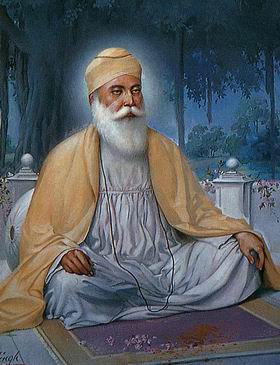

‘It is not just (Now), young man, convenient,īut perhaps I may be able to go on the (mañana), On hearing that message, the (Venerable) Ānanda said to him– The message with which he had been charged. Where the (Venerable) Ānanda was staying,Īnd exchanged with him the greetings and complimentsĪnd, so seated, he (deliVered) to the (Venerable) Ānanda ‘Very well, Sir,’ said that young man in reply. ‘ ’Twere well if the (Venerable) Ānanda would be so kindĪs to pay a visit to Subha, the young (Brahmin), Go to the Samaṇa Ānanda, and ask in my nameĪs to whether his sickness and indisposition has abated,Īs to his health and vigour and condition of ease Was dwelling at Sāvatthi on some business or other. “Now at that time the young (Brahmin) Subha, Shortly after the Exalted One had died away. In the Jeta Wood, in Anātha Piṇḍika’s pleasaunce, The (Venerable) Ānanda was once staying at Sāvatthi Kṣetrakṣetrajñayor jñānaṃ yat taj jñānaṃ mataṃ mama 13.3 Kṣetrajñaṃ cāpi māṃ viddhi sarvakṣetreṣu bhārata Idaṃ śarīraṃ kaunteya kṣetram ity abhidhīyateĮtad yo vetti taṃ prāhuḥ kṣetrajña iti tadvidaḥ 13.2 Prakṛtiṃ puruṣaṃ caiva kṣetraṃ kṣetrajñam eva caĮtad veditum icchāmi jñānaṃ jñeyaṃ ca keśava 13.1 And know that I am the Knower in all Fields, O Bharata Īnd only the knowledge of the Field and its Knower This body, O son of Kunti, is called the Field,Īnd he who knows it is called the Knower of the Field Prakriti and Purusha, the Field and the Knower of the Field, KsteraKsetraJñaviBhagaYogahe 13:1 – 3 (Bhagavad Gita). Vayehi kol-nefesh yots’ey yerech-Ya’akov shiv’im nafesh veYosef hayah veMitsrayim. Ve’eleh shemot beney Yisra’el haba’im Mitsraymah et Ya’akov ish uveyto ba’u.ĥ. “5 Now all those descended from (Yaakov) were seventy souls, “2 (Reuven), (Shimon), Levi, and (Yehudah). With (Yaakov), each man and his household came– “1 And these are the names of the sons of Israel (Chapter– ‘Twentieth Century Achievements,’ p 202 What awful brain compel’s (God’s) awful hand. Why flesh that mirrors (God) must someday die, “I doubt not God is (Right), well-meaning, kind,Īnd id (God) stoop to quibble could tell why The schoolmaster wrote the alphabet for Nanak,

The schoolmaster writes the letters with a kind of liquid chalkĪnd the children repeat their names aloud In teaching children the letters of their language. “In India wooden tablets painted black are employed Was the custodian of the wealth of the house.Ĭorresponding to three (furthlings) of English money, The school appears to have been a humble one, The schoolmaster thought the time had arrived. His (far), as was the tradition (amongst) the Hindu Khatri caste,Īsked the village astrologer to select an auspicious timeįor the commencement of the boy’s education. “When young Nanak was seven years of age, The Teaching from SikhiWiki and Countee Cullen shares– SikhiWiki, an online informational centre for the Sikhi Tradition Honesty, Sobriety, Veganism, Marital Fidelity, Ethical Economics.” This includes Book 13 of the Analects of Confucius This is the Weekly Consideration for Portion 13 Shmot, Honesty, Sobriety, Veganism, Marital Fidelity, Ethical Economics”


 0 kommentar(er)
0 kommentar(er)
